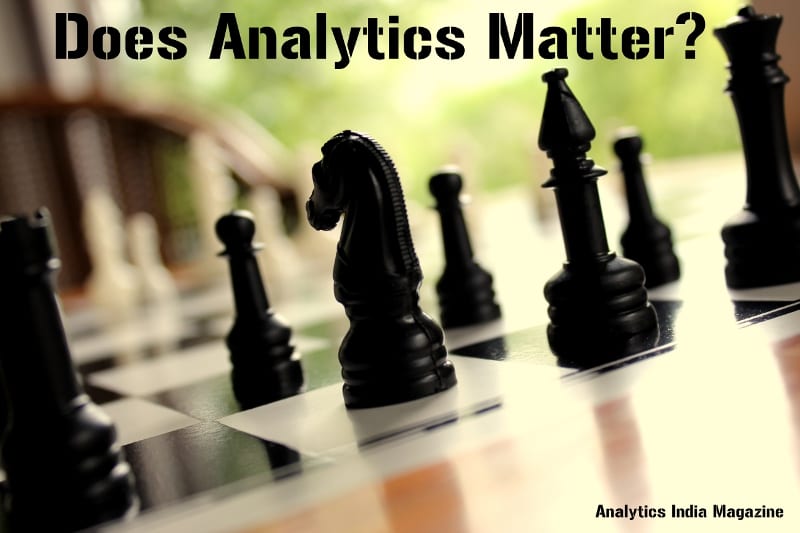 In its May 2003 edition, Harvard Business Review published an article called “IT Doesn’t Matter”, which since then became one of the most debated articles on IT strategy. The article argued that IT doesn’t matter anymore to corporate strategy. As the availability of IT increased and the cost decreased, IT has become ubiquitous and thus a commodity inputs. The basis for a sustained competitive advantage is scarcity, not ubiquity. Hence, IT has become a commodity resource and, therefore, is no longer strategic.
In its May 2003 edition, Harvard Business Review published an article called “IT Doesn’t Matter”, which since then became one of the most debated articles on IT strategy. The article argued that IT doesn’t matter anymore to corporate strategy. As the availability of IT increased and the cost decreased, IT has become ubiquitous and thus a commodity inputs. The basis for a sustained competitive advantage is scarcity, not ubiquity. Hence, IT has become a commodity resource and, therefore, is no longer strategic.
We take a step further and investigate the same argument for Analytics. It is quite evident that analytics follows a pattern of adoption strikingly similar to that of IT. For the period when IT was evolving and taking a stronger foothold into the way businesses were run, IT opened opportunities for forward-looking companies to gain strong competitive advantages. But, can we say the same today when the core functions of IT – data storage, data processing and data transport – have become available and affordable to all.
Analytics is still at a very nascent stage compared to what IT was ten years back. Vendors are launching products and developing advanced tools, of which not many single products/ tools have gained widespread industry acceptance. Moreover, standard models for problem solving are years away from gaining extensive recognition. Organizations and analytics professionals are learning and inventing as they move up the knowledge curve.
On the other hand, some industries were early adopters of analytics. Specific case in point here is the financial industry, especially in developed world. Capital One’s success in the last decade of the century was due to its being the early adopter of customer information to derive meaningful insights and provide mass customized products based on this information. Yet, most other insurers later caught up with this information based strategy. Analytics today is utilized by most medium to large sized financial institutions in west.
The very power and presence of analytics in financial industry has transformed analytics from potentially strategic resources into commodity factors of production. Today, optimized pricing models, customer scorecards and risk models are almost ubiquitous in insurance industry. Analytics is becoming the cost of doing business that must be paid by all but provide distinction to none.
In India, the divide between adopters and non-adopters of analytics is pretty wide. While talking to the CMO of a leading Life Insurance company in India, I asked her about the usage of analytics in her department. She was quick enough to dismiss it as another flash in the pan.
Similarly, ecommerce adopted analytics pretty early in its evolution. Today, visitors based customized stores are a common feature on an ecommerce site. Even the immature ecommerce industry in India has recognized the value of analytics and has in house teams working on it.
What does it imply for cost conscious organizations and managers today? For industries where analytics adoption is still in its nascence, postponing analytics investments would derive more value for its money. A company will make smarter decisions as analytics capabilities become more homogenized later down the adoption curve. Moreover, a brief disruption in analytics availability can be devastating to a company, and the risks of more and different disruptions are increasing. For example, internet sentiments based algorithmic trading is becoming widely utilized in stock trading area, yet critics have raised voice against it when in the past a small disruption in its logic took the whole stock market crashing.
It is better to be a laggard than to face the risks of obsolesce and disruption. In a recent study (Wiggins & Ruefli), only 2 percent of the firms in a large sample managed to sustain superior performance through disruptive strategies over a 10-year period. Yet, you can be a laggard for a while, but then you eventually get blown away by companies that have more innovative business strategies and are leaders in adopting them.
The equation changes where analytics has been adopted early. For industries where adoption was early and deep, analytics may become commodity and alone doesn’t give strategic competitive advantage. What matters here is the intelligent and innovative application of information that creates customer value. For these industries, correlation between analytics spending and performance would be low. As analytics become more homogenized, cost performance should only improve.
Extracting value from analytics requires innovations in business practices. Companies that insert analytics without changing business practices or way of thinking destroy any economic advantage. There is a tendency of corporations to believe that analytics just complements their existing business processes by providing in depth information on how business is being run. Rather, it is much more than that. It is an enabler of business processes and practices, and most likely a disruptive value provider. It can completely transform the way businesses were traditionally run.
Analytics will be utilized by visionary companies that see possibilities where others do not and which exploit the information based strategy to derive value never even predicted. If you are aggressive player in your industry and want to stay ahead of your peers, go on to invest heavily on analytics irrespective of where your industry stands on adoption curve.


















































































